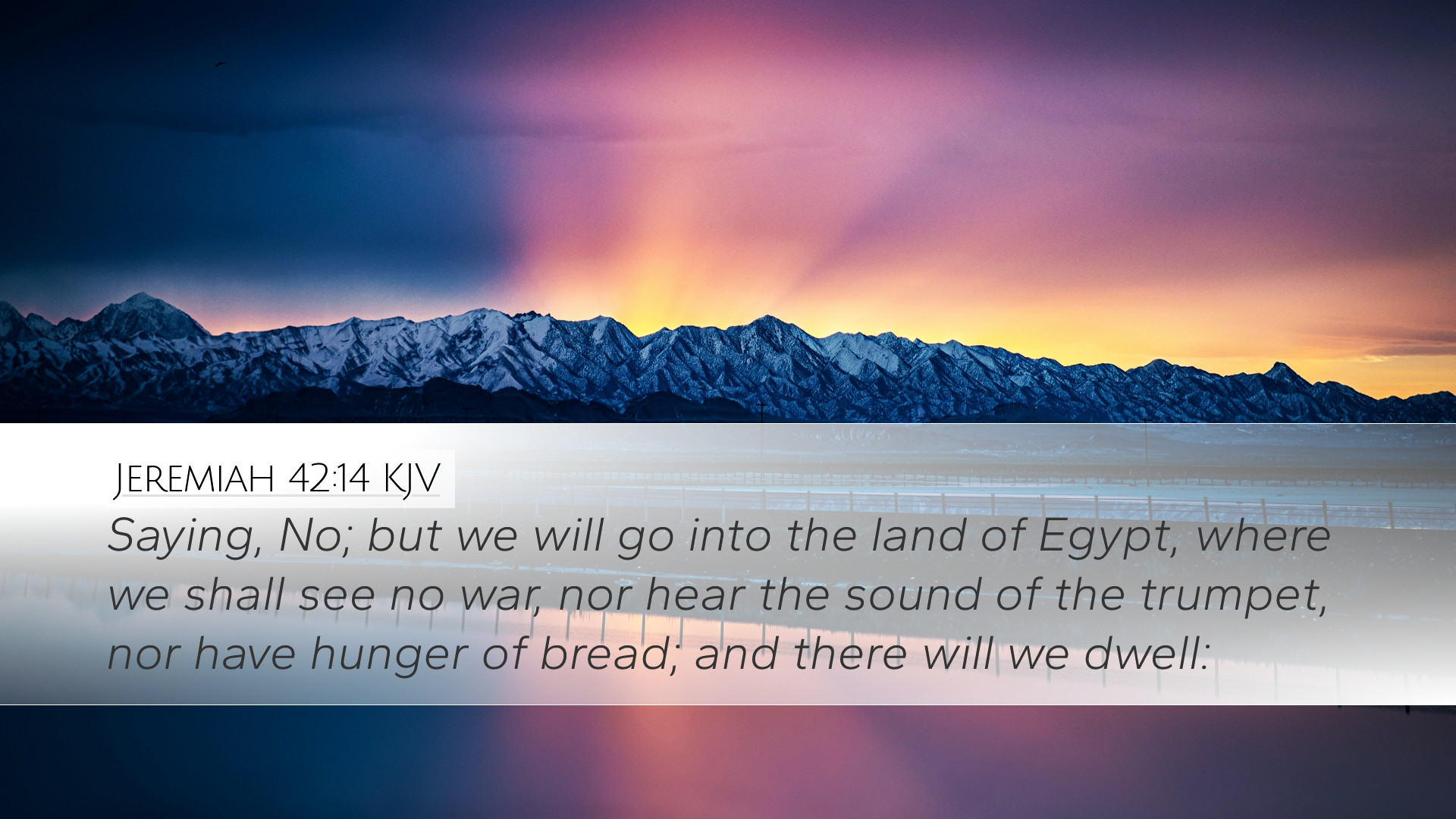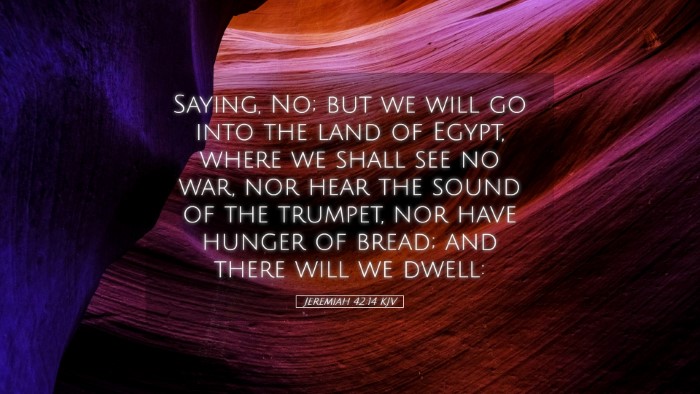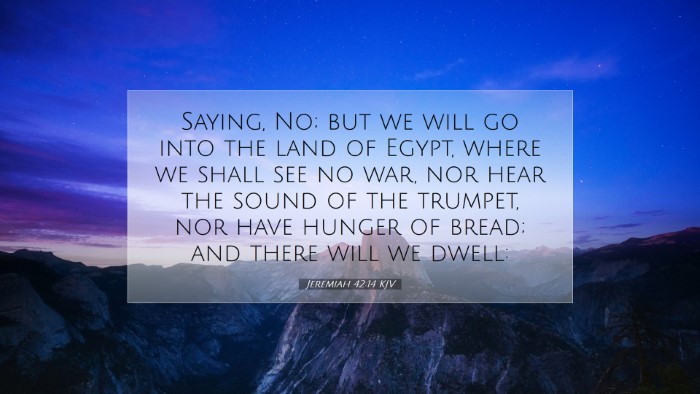Commentary on Jeremiah 42:14
Verse Overview
Jeremiah 42:14 states: "Saying, 'You shall not go to Egypt to sojourn there; for you shall not know certainly what is going to happen to you.'" This verse captures the essence of divine guidance amidst human uncertainty, emphasizing the danger inherent in departing from God's will.
Contextual Background
This passage occurs in a critical juncture of Israel's history, where the people are faced with the aftermath of the Babylonian conquest. As they contemplate fleeing to Egypt for safety and stability, the prophet Jeremiah receives a message from God warning them against this course of action.
Theological Insights
- Divine Sovereignty: This verse conveys God’s absolute authority over the destinies of nations and individuals alike. The refusal of the Israelite leaders to heed the warning underscores the tension between divine sovereignty and human freedom.
- Human Uncertainty: The Israelites sought to escape their distress by turning to Egypt, symbolizing reliance on worldly solutions instead of faithful dependence on God. This echoes themes of distrust and the unsteady foundation of human plans.
- The Role of the Prophet: Jeremiah’s role as a prophet illustrates the importance of prophetic voices in discerning God’s will for His people, effectively serving as intermediaries between God and humanity.
Commentary Insights
1. Matthew Henry’s Commentary
Matthew Henry notes that the Israelites were inclined to flee to Egypt, not out of conviction but rather out of fear and a desire for immediate safety. He points out that God’s command through Jeremiah serves as a divine safeguard against making rash decisions. Henry emphasizes that these people failed to trust in God’s providence, which was aimed at their ultimate good despite the present circumstances.
2. Albert Barnes’ Commentary
Albert Barnes further elucidates the gravity of the situation in Jeremiah 42:14. He highlights that the Israelites’ intention to go to Egypt wasn't merely a physical relocation; it symbolized a deeper spiritual departure from reliance on God’s promises. According to Barnes, the prophet’s warning lays bare the futility of seeking security in human resources, urging believers to remain steadfast in faith even when circumstances seem dire.
3. Adam Clarke’s Commentary
Adam Clarke provides a thorough examination of the socio-political context surrounding this passage. He discusses the allure of Egypt as a land of riches and stability, comparing it to the spiritual temptations of modern life. Clarke warns that individuals must discern God’s voice amidst societal pressures and not allow fear to drive them away from divine guidance. His insights reveal that in the struggles of life, God often calls His people to trust in Him over the gratifying but ultimately harmful seductions of the world.
Practical Applications
For pastors, students, theologians, and scholars, the lessons drawn from Jeremiah 42:14 are both profound and applicable:
- Faith in Adversity: The narrative urges believers to trust in God during uncertain times, reinforcing that faith is a beacon even when external circumstances suggest otherwise.
- Importance of Prophetic Leadership: This passage highlights the necessity of prophetic voices that guide communities toward God’s will, reminding leaders to remain attuned to divine instruction.
- Guarding Against Worldly Temptation: The allure of Egypt serves as a metaphor for the many distractions and temptations within contemporary society that can lead believers away from God's calling.
Conclusion
Jeremiah 42:14 invites deep reflection on the nature of faith, reliance upon God, and the perils of seeking security outside of His providence. As the insights from Matthew Henry, Albert Barnes, and Adam Clarke illustrate, this passage is not merely an historical account but a timeless lesson on the importance of discernment and fidelity to God's direction.


